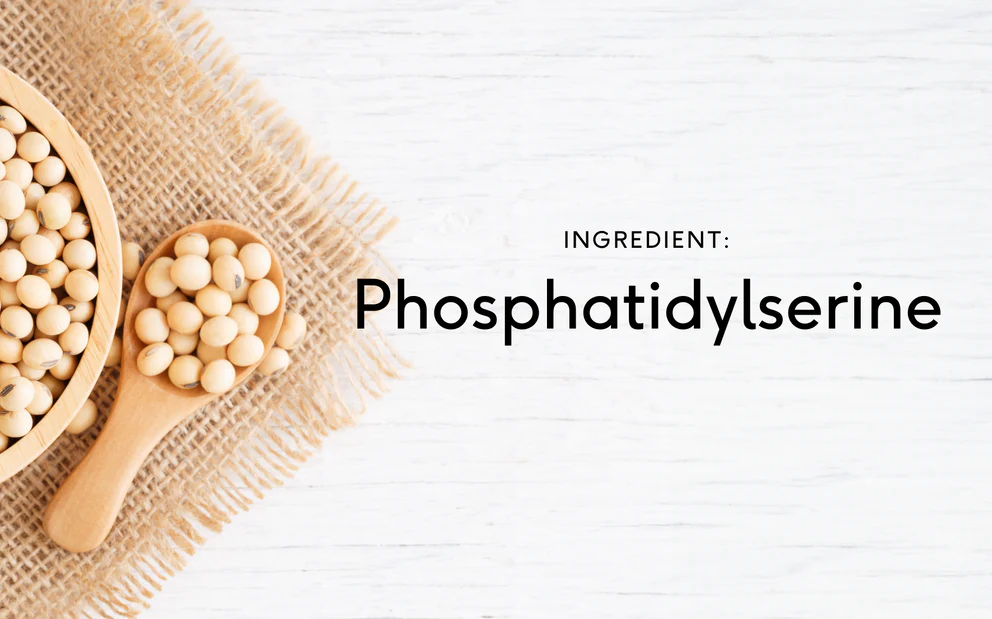Phosphatidylserine is an important building block of cell membranes that give them structure and flexibility. It is also found in the brain where it can help with memory and focus.
It has been shown to reduce the effects of chronic inflammation in the body and may improve mental health. It can also decrease anxiety and depression by dampening the stress response in the body.
What is phosphatidylserine?
Phosphatidylserine is an important molecule that helps regulate nerve function and myelination, which provides insulation to neurons. Phosphatidylserine can be obtained from foods or taken as a dietary supplement. It is available in tablet or capsule form and should be taken as directed on the label. It is recommended to take phosphatidylserine in combination with omega-3 fatty acids like DHA and EPA because they help increase its absorption.
Studies suggest that phosphatidylserine may improve memory. One double-blind study involving 149 older people with ordinary age-related memory loss found that those who took PS and omega-3 fatty acids had better memory than those who did not take the supplements. However, more research is needed to determine whether PS and omega-3 fatty acids are effective for treating this condition.
Another possible use of phosphatidylserine is to reduce anxiety. It is thought that phosphatidylserine can help relieve anxiety by reducing stress and encouraging the body to relax. It is also believed to work by balancing cortisol levels, which is a hormone that responds to stress.
Phosphatidylserine does not appear to interact with any drugs in a typical dosage, although it should be used with caution if taking other medications, especially antidepressants or other psychiatric medicines. It is also recommended to check with your doctor before starting any new dietary supplement, including phosphatidylserine. Phosphatidylserine supplements are marketed as dietary supplements and not as medicine.

What are phospholipids?
Phospholipids are fat-like molecules that are an essential part of cell membranes. They have both water-compatible (polar) and fat-compatible (nonpolar) components, which allows them to form bilayers—a feature of all living membranes. They also contain a glycerol backbone and two fatty acid chains that can be saturated or unsaturated. The fatty acid chains are attached to phosphate groups, which have hydrophilic (water-loving) and hydrophobic (water-repelling) ends. This creates a bilayer structure that is both stable and flexible.
Phosphatidylserine and phosphatidylcholine are two types of phospholipids that are found in the brain. These lipids are important for maintaining the health and function of cells, particularly in the nervous system. Phospholipids are also involved in the transmission of signals between neurons and between nerve cells. They are also involved in the metabolism of glucose and the synthesis of cellular energy.
In addition, phospholipids are used in the formation of liposomes, microscopic vesicles that can encapsulate drugs for delivery to the body. They are also used as emulsifiers in food and cosmetic products.
In dietary contexts, choline-containing phospholipids have been linked to healthy brain development in infants and improved cognitive function in adults. Choline is abundant in many foods, including fish, eggs and organ meats, and some plant-based sources such as quinoa, soya milk, almonds, peanuts and cruciferous vegetables. However, research on the effects of dietary phospholipids has been limited. In one study, phosphatidylcholine was found to reduce stress-induced elevation of cortisol in healthy individuals.
What are the benefits of phosphatidylserine?
A fatty substance found naturally in your body, phosphatidylserine is a key component of the cell membranes that surround our living cells. These protective barriers allow essential nutrients in and keep harmful substances out. They also help our cells communicate with each other, and play an important role in maintaining brain health.
Phosphatidylserine is able to pass through the blood-brain barrier and enter our brain, where it acts as a messenger between neurons (brain cells that transmit information). It’s been shown to improve learning and memory in healthy people. It can also lower levels of cortisol, a hormone that can cause depression and increase stress levels.
Despite these promising findings, more research is needed before phosphatidylserine can be considered a treatment for Alzheimer’s disease or other serious age-related cognitive disorders. In addition, it’s possible that phosphatidylserine could interact with other medications. People taking prescription blood thinners, including warfarin (Coumadin), heparin, aspirin, clopidogrel (Plavix) and ticlopidine (Ticlid), should only take phosphatidylserine under a doctor’s supervision because it can thin the blood.
In general, phosphatidylserine seems to be safe for most adults when taken in doses of 200-400 mg daily for up to six months. However, stomach upset and insomnia are possible side effects. Most phosphatidylserine supplements were previously made from cow brain, but prion disease scares in the 1990s led to a switch to plant-based products. Look for phosphatidylserine derived from cabbage, soy, or another vegetable source.
Is phosphatidylserine good for anxiety?
Phosphatidylserine is a nootropic that can improve sleep and reduce anxiety. It works by reducing cortisol levels, which is the hormone released when we experience stress. (5)
It can also improve depression and boost memory. In one study, people over the age of 65 who took phosphatidylserine and omega-3 fatty acids three times a day experienced reduced symptoms of depression. (1)
Although phosphatidylserine is found naturally in our bodies, it can also be taken as a dietary supplement. It is used for many different purposes, including reducing the risk of Alzheimer’s disease, improving mental decline in elderly patients, and helping children with ADHD focus. (2)
Some foods that are high in phosphatidylserine include organ meats (chicken liver and beef liver), fatty fish, such as mackerel and tuna, cabbage, soybeans (edamame), and eggs. However, most of the phosphatidylserine that we consume comes from supplements, which are usually made from animal brain or plant-based sources such as sunflower or soy.
It is important to talk to your doctor before taking phosphatidylserine, especially if you have any health conditions or are taking medication. The Food and Drug Administration doesn’t regulate dietary supplements, so the quality and active ingredients can vary from maker to manufacturer. Always read the label and follow the recommended dosage. In some cases, phosphatidylserine may cause side effects, such as stomach upset or sleepiness. It may also interact with certain medications, such as blood thinners and antidepressants.
What are the side effects of phosphatidylserine?
Phosphatidylserine is a natural substance produced in the body. It is a component of cell membranes that act like a layer of skin around each living cell, protecting them and allowing nutrients to move into cells and waste materials to be pumped out. It is also known to help reduce inflammation in the body.
It is a fatty acid that can be found in foods such as soybeans, egg yolks, liver and is also available as a supplement. It is thought to have little risk for adverse side effects when taken in recommended dosages. It can cause stomach upset and insomnia in some people, but these symptoms usually resolve with discontinuation of the phosphatidylserine.
Research has shown that phosphatidylserine can help improve exercise performance, alleviate muscle soreness, protect memory and regulate mood. It may also be beneficial in reducing the symptoms of ADHD in children. A study comparing the benefits of phosphatidylserine to those of placebo in a small group of children showed that after two months, phosphatidylserine improved auditory memory and decreased impulsiveness and hyperactivity.
Phosphatidylserine can increase a chemical in the body called acetylcholine, which plays a big role in many important functions. Some medications used to treat glaucoma, Alzheimer’s disease and antihistamines also increase acetylcholine levels. Taking phosphatidylserine with these medications might increase the chance of side effects. Talk to your doctor before taking phosphatidylserine if you are on medication for these conditions or are pregnant or breastfeeding.
What is the dosage of phosphatidylserine?
The human body can absorb up to 300 milligrams of phosphatidylserine per day. More than this and it will be processed and flushed out of the body. The average American diet includes around 130 milligrams of phosphatidylserine. The amount of phosphatidylserine in the body decreases with age. Studies suggest that phosphatidylserine supplements may improve memory in older people. However, more research is needed. Taking phosphatidylserine can also help reduce the symptoms of attention deficit hyperactivity disorder (ADHD). In one study, children who took phosphatidylserine showed fewer signs of inattention and impulsivity than those who did not take it.
Phosphatidylserine has been shown to increase levels of a chemical in the brain called acetylcholine. This chemical plays a role in many important body functions, including learning and memory. Some medications used to treat glaucoma and Alzheimer disease, such as anticholinergic drugs, block the effects of acetylcholine. Taking phosphatidylserine may interact with these medications and increase their side effects.
Taking too much phosphatidylserine might cause an upset stomach, bloating, and insomnia. It can also thin the blood, so it should not be taken by people who are on blood-thinning medications. In addition, phosphatidylserine is a phospholipid and can affect the absorption of fat-soluble vitamins such as vitamin A and D. It is best to consult a doctor before taking phosphatidylserine. It is also a good idea to tell your doctor about any supplements you are taking, including natural ones purchased without a prescription.
